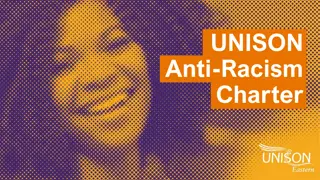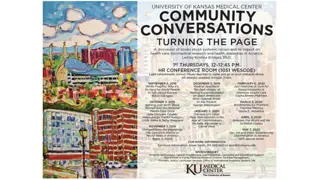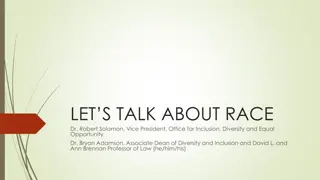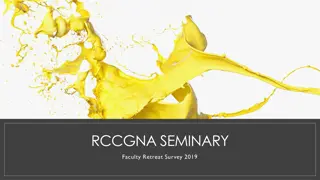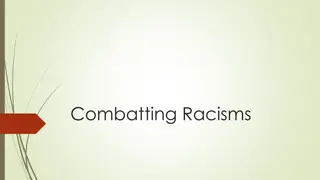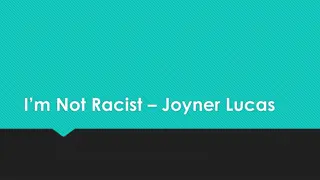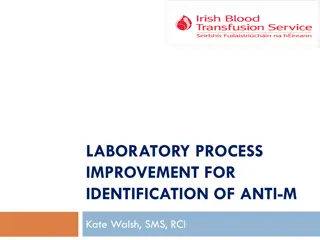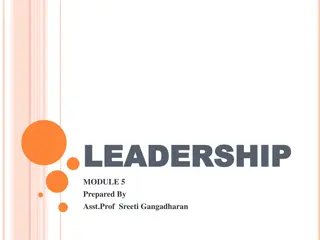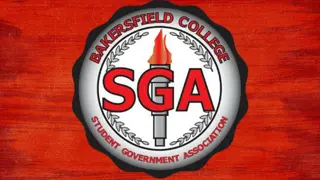Moving Towards an Anti-Racist Framework in Senior Leadership Retreat
This session focuses on transitioning from acknowledging racism to actively dismantling it in institutional policies and structures. Key areas include recruiting diverse faculty, fostering a culture of anti-racism, and emphasizing immediate equality. Participants are urged to center values of racial and social justice, assess outcomes over intentions, and engage in deep, respectful dialogue. Ground rules emphasize open-mindedness, curiosity, and full engagement.
Download Presentation

Please find below an Image/Link to download the presentation.
The content on the website is provided AS IS for your information and personal use only. It may not be sold, licensed, or shared on other websites without obtaining consent from the author. Download presentation by click this link. If you encounter any issues during the download, it is possible that the publisher has removed the file from their server.
E N D
Presentation Transcript
UConn Senior Leadership Retreat Anti-Racist Policy and Practices 25 JANUARY 2021 Jeffrey Ogbar, Jim Wohl, Donna Douglass Williams, Frank Tuitt Facilitators
MOVING FROM DIVERSITY/INCLUSION TO AN ANTI-RACISM FRAMEWORK 1) Moving from understanding and acknowledging racism, to actively dismantling the effects and vestiges of racism and white supremacy in institutional policies, systems, and structures. What interventions accomplish this? How do we activate our institution towards anti-racism? What is the action plan of the senior leaders? 2) From looking at recruiting and hiring more faculty, students, staff of color to paying equal attention to their experiences in the institution. What are the hidden effects of policies/structures/practices that are racist and/or have a disparate impact on persons of color? Do persons of color they feel supported? Is our institutional culture one that supports their success? Are they in decision making positions? Do they have, and believe they have power? Do we have a culture of anti-racism? Are we acknowledging racial hierarchy and intersectionality? ( Trauma-free Blackness )
MOVING FROM DIVERSITY/INCLUSION TO AN ANTI-RACISM FRAMEWORK 3) Moving from a relative neutrality around issues of race and racism to more radical approaches. Do we need a radical revolution of the university s values? Activating the power and authority of the leadership to assess how we embody those values and insisting that our actions reflect an aggressive anti-racism approach ( If you are neutral in situations of injustice, you have chosen the side of the oppressor. ~ Desmond Tutu) 4) Moving from training and development of managers and leaders centered on appreciation of multiculturalism to training centered on anti-racism (what is is, how to be an anti-racist institution)
MOVING FROM DIVERSITY/INCLUSION TO AN ANTI-RACISM FRAMEWORK 5) Resisting gradual equality, and insisting upon immediate equality in the institution 6) Intentions vs. Outcomes Moving from admiring our well-intentioned approaches to a focus on our actual outcomes. What outcomes related to equity and equality do we insist upon? How do we measure our success? By what process do we set our goals against which we measure our success? 7) Moving from centering our approaches on consensus and order, to a focus on racial and social justice
VALUES AND SUGGESTED GROUND RULES Open-mindedness Curiosity Respect diversity of perspectives and experiences Deep listening Full engagement Speak from first person perspective Lean into discomfort (asking questions/listening for understanding) Chatham House rules Phones/devices/sounds Tech engagement (mute, chat, hand raise function, breakout rooms, private message)
CASE STUDY QUESTIONS TO CONSIDER: How does the shift from diversity focused to an anti-racist framework inform your response to this case? In what ways are your responses different from before? What aspects of university culture, policies, and practices need to be addressed in order to align our responses to this scenario with an anti-racist framework? What is the responsibility of this senior leadership team in leading UConn to become an anti-racist institution?
CASE STUDY DISCUSSION QUESTIONS (Nov retreat) What would you consider to be the most challenging issues in this scenario? In considering developing an appropriate response, what additional information is needed? What stakeholders should be consulted? Are there institutional barriers/limitations that would impact the response in this scenario? What support/action/training/mechanisms are needed to strengthen the institution s capacity and readiness to respond to this kind of scenario? As part of a leadership task force to develop appropriate response and make decisions about action, what advice would you offer? If this happened in your college/division/unit, how would you lead your managers, faculty and staff in a coordinated response to this situation?
COMMITMENT AND ACTION How to we embody and enact our commitment to antiracist leadership? What are we willing to put into action as UConn leaders to demonstrate anti-racist leadership? What must be acknowledged about the culture of the institution in order to move towards becoming an anti-racist institution?
STOP/START/CONTINUE EXERCISE KEY THEMES Communication Leadership and Accountability Recruitment, Climate and Retention Training and Development Strategic Planning and Resource Development
STOP (COMMUNICATION AND ACCOUNTABILITY) Stop using platitudes and metaphors and call out white supremacy Stop localizing the work of DEI as the responsibility of a specific set of individuals Stop washing our hands of complaints when University officials fail to find violations of institutional policies Stop letting microaggressions go; addressing them appropriately
STOP (RECRUITMENT/RETENTION AND TRAINING/DEVELOPMENT) Stop using racist and sexist habits/practices in hiring Stop considering diversity after determining excellence Stop lack of support for new hires (retention is not a current focus) Stop making excuses for not finding a diverse candidate pool Stop asking BIPOC employees to education white employees Stop lack of institutional programming to support management in order for them to succeed
START (COMMUNICATION AND ACCOUNTABILITY) Start to become more honest and transparent about UConn s colonial history Start- charge someone with curating consistent communication and getting that consistent, reinforcing messaging to the whole community Start to engage members of our community proactively rather than reactively in confronting racism Start to put efforts towards anti-racism instead of being not racist
START (COMMUNICATION AND ACCOUNTABILITY) Start communicating in a manner that shows all members of the community that we care about them Start holding ourselves accountable Start collecting data that allows us to assess which existing policies and procedures have a racially disparate impact Start reclaiming the University s role as an engine for the public good that works with state communities to co-create a sustainable, just, and equitable society
START (RECRUITMENT/RETENTION/TRAINING/DEVELOPMENT) Start being deliberate in hiring decisions Start hiring staff and faculty of color until those numbers reflect our student and state populations Start comprehensive and compulsory faculty and staff professional development Start conversations with middle management on what it means to be anti- racist and how to become involved Evolve training for staff beyond laws and establish foundation for anti-racism
START STRATEGIC PLANNING AND RESOURCE DEVELOPMENT Launch a capital campaign with targeted fundraising goals that support becoming a leading anti-racist university Start to bolster support for underrepresented students Start to expand financial support for students facing food insecurity Support individual unit efforts to address DEI issues within their own communities in ways that are responsive to the needs of their particular community
START Make Board of Trustees more diverse Start a leadership development program for young entry level people of color in order to provide opportunities, develop, train, and mentor our own, which would increase the pipeline over time for diversifying our workforce Create a part of UConn Today that is focused on anti-racism; curate information and keep it in the public eye More conversations: people need to talk with each other about racism and anti-racism as a first step towards change; the university should provide the means for those conversations to take place formally and informally. Initiate diverse conversations; expose the myths View Diversity, Equity and Inclusion as a strategic initiative; elevate issues of inclusions and belonging so that our efforts are more focused on retention and belonging
CONTINUE (COMMUNICATION AND ACCOUNTABILITY) Continue to have difficult conversations around the tension between the values academic freedom/free speech and the need to be more attentive to explicit and implicit acts of racial aggression Continue calling out white supremacy Continue to call out mistreatments in the learning environment due to bias and discrimination Continue to change culture to eliminate racism Continue to separate enforcement of DEI issues (e.g. OIE, Community Standards) from building a culture of respect and inclusion (e.g. ODI)
CONTINUE TRAINING/DEVELOPMENT AND STRATEGIC PLANNING/RESOURCE DEVELOPMENT Continue the conversation about anti-racist ideas and actions with senior leadership Continue to raise people up, encourage them to participate, lead, engage and coach each other along the way Continue to support ODI as a centralized resource for expertise and advice for units across campus in additional to serving as a voice for anti- racism across the University
QUESTIONS TO CONSIDER: What steps need to be taken to implement some of these key themes? What are some of the challenges for this leadership group in implementing these key themes? How could we overcome some of these challenges?














